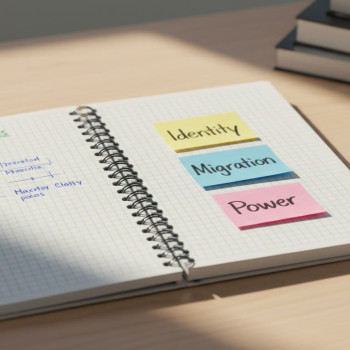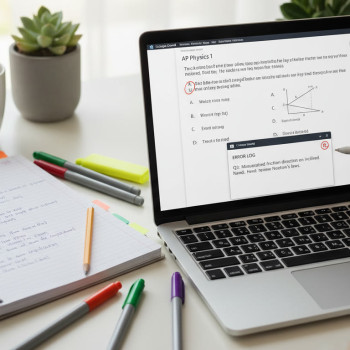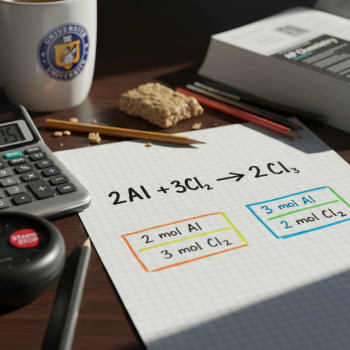AP to Stevens: Why Advanced Placement Matters for Aspiring Engineers
For many students dreaming of engineering at schools like Stevens Institute of Technology, AP courses are more than a checkbox on an application. They’re a proving ground — the place where curiosity meets rigor and where you begin to speak the language of engineering. AP classes let you demonstrate advanced mastery in math, physics, and computing; they give admissions committees concrete evidence of your readiness; and they prime you for the fast pace of undergraduate engineering curricula.

What Stevens Looks For
Stevens values strong quantitative skills, creative problem solving, and sustained academic curiosity. AP performance in relevant subjects — especially Calculus AB/BC, Physics C (Mechanics and Electricity & Magnetism), AP Computer Science A, and AP Chemistry — signals both preparedness and interest. But beyond scores, Stevens (like many selective engineering schools) also values:
- Depth of engagement — projects, research, robotics, or competitions that show you applied what you learned;
- Intellectual curiosity — evidence you took the initiative to learn beyond the classroom;
- Clear demonstration of teamwork and communication — engineering is collaborative.
Mapping AP Courses to Stevens’ Engineering Pathways
Not all AP courses are created equal for engineering applicants. Below is a practical mapping that helps you prioritize while keeping a balanced load.
| AP Course | Most Relevant Stevens Majors | Why It Matters |
|---|---|---|
| AP Calculus AB/BC | All Engineering Disciplines | Foundational mathematical toolset; BC shows additional rigor and readiness for multivariable calculus. |
| AP Physics 1 & 2 / AP Physics C | Mechanical, Aerospace, Civil, Electrical | Physics C (with calculus) is especially weighty for engineering; it demonstrates applied mechanics and E&M understanding. |
| AP Chemistry | Chemical, Materials, Biomedical Engineering | Important for chem-heavy majors; shows lab familiarity and chemical reasoning. |
| AP Computer Science A / Principles | Computer, Electrical, Software, General Engineering | Coding and algorithmic thinking are crucial across many engineering fields. |
| AP Statistics | Data Science, Industrial Engineering, Research | Useful for experimental design, data analysis, and decision-making. |
How to Build a High-Value AP Plan
Rather than taking APs to fill a quota, design a plan that balances ambition and sustainability:
- Year 1 (Freshman): Lay the foundation — Honors or accelerated Algebra/Geometry and foundational science.
- Year 2 (Sophomore): Start AP Calculus AB (or Pre-Calculus accelerated track) and one lab science if available.
- Year 3 (Junior): Tackle AP Calculus BC and AP Physics (1, 2 or C depending on readiness) — this is the heavy lifting year.
- Year 4 (Senior): Advanced or specialized APs (Physics C if not done, Chemistry, Computer Science) and capstone projects or independent research.
Quality beats quantity. Excelling in three to five well-chosen APs related to engineering will typically matter more than superficial success in eight unrelated APs.
Preparing for AP Exams with an engineering mindset
Engineering is applied problem solving; approach AP exam prep the same way. Don’t memorize in isolation — build mental models and translate concepts into real problems.
Active Strategies That Work
- Solve backward: Start with complex free-response problems, then trace back to the concepts you need.
- Project-based learning: Turn a topic into a small project — build a simple circuit for electricity & magnetism, simulate a projectile to deepen mechanics understanding.
- Explain aloud: Teaching classmates or recording a short explanation forces clarity and identifies gaps.
- Timed practice sets: Simulate exam conditions periodically to build speed and stamina.
Personalized coaching can make an outsized difference here. For students who want targeted feedback, Sparkl’s personalized tutoring offers 1-on-1 guidance, tailored study plans, and expert tutors who connect AP concepts to engineering applications — helping you practice not just for a test, but for the kind of thinking Stevens values.
Translating AP Scores into College Credit and Placement at Stevens
Many universities grant credit or placement for high AP scores, which can accelerate degree completion or allow you to dive into specialized topics sooner. While Stevens’ exact AP credit policy may vary by year and department, the general landscape looks like this:
- High scores in Calculus can often place you out of introductory calculus sequences, freeing space for advanced electives.
- AP Physics C scores may allow placement beyond introductory physics labs or grant elective credit in certain cases.
- AP Computer Science A can sometimes exempt you from introductory programming courses.
Important practical tip: even if you earn credit, consider whether you want the credit or prefer to take the college course at Stevens to build relationships with faculty and peers, or to take a more rigorous calculus/physics sequence aligned with the engineering program. This strategic choice depends on your confidence, career goals, and the specific placement policies at the time you matriculate.
Sample AP-to-College Planning Table
| AP Score Range | Typical Outcome | Student Consideration |
|---|---|---|
| 5 | Highest likelihood of credit/advanced placement | Take advanced or honors courses at Stevens or explore undergraduate research early |
| 4 | Possible credit or placement depending on department | Review syllabus differences before deciding to skip a course |
| 3 | Sometimes credit for electives; often used for placement only | Consider retaking or taking the intro course to solidify fundamentals |
Strengthening Your Application: Beyond Scores
AP scores are important, but Stevens reads applications holistically. Use AP coursework as a spine for a narrative that shows growth, curiosity, and practical experience.
Concrete Ways to Amplify Your Profile
- Portfolio Projects: Create a digital portfolio showing coding projects, circuit designs, robotics entries, or engineering sketches. Short descriptions of what you learned are essential.
- Research and Internships: Reach out to local university labs or companies for summer internships — even small roles can be transformative.
- Competitions and Clubs: Participate in FIRST Robotics, math competitions, hackathons, or engineering clubs. Leadership and teamwork often shine brighter than solo achievements.
- Capstone or Independent Study: Propose an independent engineering study with a teacher or mentor; document methods, results, and next steps.
Admissions officers appreciate when AP performance is clearly tied to meaningful, hands-on work. If you used knowledge from AP courses to build something real, make sure that story is front and center in your essays and activity descriptions.
AP Exam Season: Practical Timeline and Study Milestones
Structure your months so you build momentum without burnout. Below is a practical timeline that balances content mastery with problem-solving practice.
- T-minus 4–6 months: Diagnose strengths and weaknesses using past exams; create a prioritized study plan.
- T-minus 2–3 months: Deep practice on free-response questions and conceptual weak spots; schedule weekly mock exams.
- Final month: Focus on timed practice, exam strategies, and short, frequent review spells; lean on study groups for motivation.
Students who pair this timeline with adaptive help — like Sparkl’s AI-driven insights and expert tutors — often find they close knowledge gaps faster. Personalized plans can highlight which AP units are most predictive of success in an engineering major and allocate study time more efficiently.
Balancing AP Rigor with Well-Being
High-achieving students sometimes confuse nonstop acceleration with better preparation. Sustainable success is a product of steady study, healthy routines, and strategic rest.
Tips to Keep You Energized and Effective
- Sleep as a priority — cognitive consolidation happens in sleep.
- Micro-reviews daily — short, frequent study beats occasional marathon sessions.
- Mix problem types — alternate conceptual review with hands-on tasks and projects.
- Keep creativity alive — hobbies and creative outlets feed the same neural networks that support problem solving.
Remember: Admissions teams notice consistency and resilience. A balanced transcript with strong, purposeful AP choices and healthy extracurriculars tells a more compelling story than a transcript overloaded with APs but lacking depth.
Examples: Student Journeys to Stevens
Here are two composite, realistic profiles to inspire planning. These are anonymized, plausible trajectories (not real people) designed to show different routes to success.
Case A: The Calculus-First Innovator
Profile: Took AP Calculus BC in junior year, AP Physics C senior year, and AP Computer Science A. Built a simple autonomous rover in a robotics club and completed a summer coding internship.
Why it worked: Strong math foundation and a demonstrable engineering project aligned neatly with an application narrative. AP scores helped with placement so they could enroll in a specialized controls course early in college.
Case B: The Lab-Focused Materials Student
Profile: Focused on AP Chemistry and AP Physics, complemented by AP Calculus AB. Conducted a summer materials research project at a local university and led a materials science club.
Why it worked: The student tied AP knowledge to lab experience, demonstrating both conceptual depth and practical lab skills important for materials or chemical engineering tracks.
Essay and Interview: Framing AP Experience for Stevens
When you write essays or prepare for interviews, frame your AP experiences not as tests taken but as intellectual stepping stones. Admissions readers love narratives that show curiosity, challenges overcome, and transferable skills.
- Pick a specific learning moment from an AP class — a lab that went wrong, a problem you wrestled with — and describe what you learned about process, persistence, and design thinking.
- Connect the dots: Show how the skills you developed in AP (e.g., modeling in calculus, experimental rigor in physics) prepare you for engineering-level work.
- Be concise and reflective — specifics beat generalities.
If you’re nervous about presenting this material, a targeted coach can help you craft a compelling narrative. Sparkl’s tutors can provide essay feedback that ties your AP coursework to an engineering storyline admissions officers find memorable.
Practical Checklist: AP to Stevens Application Readiness
| Task | When to Complete | Why It Matters |
|---|---|---|
| Choose 3–5 core APs related to intended major | By end of sophomore year | Allows focused achievement and time for projects |
| Begin portfolio of projects | Ongoing, start junior year | Provides evidence of applied skills |
| Take at least one AP exam by junior year | Spring of junior year | Gives early feedback and informs senior year plan |
| Draft narratives tying AP learning to engineering interests | Summer before senior year | Prepares strong essays and interview talking points |
Final Thoughts: Designing Your Unique Path
There’s no single blueprint to Stevens — what matters is how intentionally you use AP opportunities. Select APs that build the technical backbone for engineering, leverage hands-on projects to show application, and craft a coherent story that connects coursework, curiosity, and practical experience.
In the end, APs are a vehicle: they can accelerate your academic start, demonstrate readiness, and give you meaningful content to discuss in essays and interviews. Use them strategically — paired with projects, research, and reflective storytelling — to create an application that’s both credible and compelling.
If you want tailored help mapping AP choices to an intended Stevens major, or personalized study plans that focus on the exact units most predictive of success in engineering, consider 1-on-1 guidance. Sparkl’s personalized tutoring blends expert tutors, AI-driven insights, and tailored study plans to help you focus on what matters most — your growth as a problem solver and future engineer.
Parting Advice
Build steadily, reflect often, and prioritize depth over surface-level accumulation. APs can open doors at Stevens, but your curiosity, projects, and willingness to learn from failure will get you through those doors and help you excel once you step inside.

Start with clarity, plan with purpose, and let your AP journey be the foundation for real engineering work — the kind that solves problems, serves people, and keeps you excited for the next challenge.
















No Comments
Leave a comment Cancel